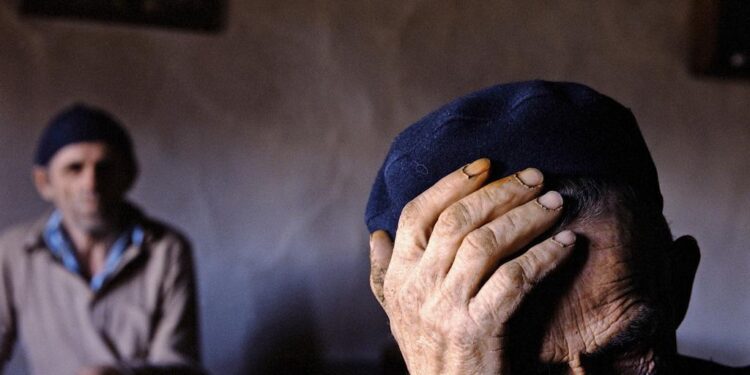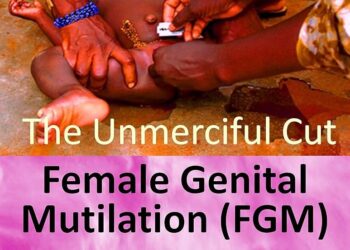Urgent Call for Action too Prevent a Return to War and genocide in Bosnia and Herzegovina – Justice For All
In a chilling echo of the past, Bosnia and Herzegovina stands at a precarious crossroads, with rising ethnic tensions threatening to plunge the region back into the depths of conflict. As the world reflects on the harrowing legacy of the Bosnian War and the genocide that claimed thousands of lives in the 1990s, humanitarian organizations, political leaders, and activists are sounding urgent alarms. An unprecedented call for action has emerged, urging the international community to intervene decisively to safeguard peace and stability in the Balkans. Amidst fears of a resurgence of violence, the imperative for justice and reconciliation has never been more critical. This article examines the current landscape, the voices demanding accountability, and the necessity of proactive measures to prevent a return to the horrors of war and genocide in Bosnia and Herzegovina.
International Community Must Prioritize Accountability for War Crimes to Prevent Future Atrocities
The international community stands at a crucial juncture in its commitment to justice, particularly concerning the tragic events that unfolded in Bosnia and Herzegovina in the 1990s. Timely and decisive actions are imperative to address the continuing impunity for those responsible for war crimes. Efforts must be amplified to ensure that perpetrators face justice, as accountability serves as a powerful deterrent against future atrocities. The legacy of the past cannot be ignored; it compels nations and institutions to understand that without stringent measures, the conditions that led to genocide can re-emerge.
To uphold a commitment to justice and human rights, the international community should consider implementing the following measures:
- Strengthen existing legal frameworks to prosecute war crimes more effectively.
- Increase support for the international Criminal Tribunal for Former Yugoslavia (ICTY) to expedite pending cases.
- Enhance collaboration between nations in the form of intelligence sharing and joint investigations.
- Promote educational initiatives that raise awareness about the impact of war crimes and the importance of accountability among younger generations.
| Action Item | Expected Outcome |
|---|---|
| Strengthen Legal Frameworks | Increased prosecutions for war crimes |
| Support ICTY | Faster resolutions of ongoing cases |
| Collaborate on Investigations | Improved intelligence and effectiveness |
| Educational Initiatives | Heightened awareness and prevention |
Grassroots Movements and Local Leaders Play Crucial Role in Promoting Peace and Reconciliation
The undercurrents of conflict in Bosnia and Herzegovina reveal the critical importance of grassroots movements and local leaders in fostering peace and reconciliation. Thes community-driven efforts are frequently enough the first point of contact for individuals seeking to heal the scars of war, and thay build bridges between diverse ethnic groups. Local leaders play a pivotal role by mobilizing citizens around a collective vision for a peaceful future, organizing dialogues, and promoting understanding through cultural exchanges. They serve as trusted figures who can translate complex political issues into actionable community strategies,ensuring that the voices of everyday people are heard in ongoing discussions for stability and justice.
Moreover, grassroots movements are instrumental in advocating for the rights of victims and ensuring that their stories are not forgotten in the political discourse. These initiatives frequently enough include programs such as:
- Community workshops that focus on conflict resolution and anti-discrimination.
- Public demonstrations to raise awareness of human rights abuses.
- Educational campaigns to inform younger generations about the past, emphasizing the importance of peace.
Collaboration among local NGOs, faith groups, and civil society organizations enhances the reach and effectiveness of these movements. By standing united, these local leaders are crucial in countering hate speech and promoting a narrative centered around coexistence, thus paving the way for a lasting peace that addresses the deep-rooted issues affecting Bosnia and Herzegovina today.
Concluding Remarks
As the specter of conflict looms over bosnia and Herzegovina, the international community must heed this urgent call for action to safeguard the fragile peace that has been painstakingly built over the past three decades. The echoes of war and genocide serve as a harrowing reminder of the past,underscoring the importance of vigilance,justice,and accountability in the present.
Political leaders, civil society, and citizens alike are urged to rally together, not only to prevent a descent back into chaos but to foster an environment of reconciliation and unity. The road ahead requires commitment and collaboration from all parties involved—both local and international.
As we reflect on the lessons of history, we must stand in solidarity with those advocating for justice and human rights in Bosnia and Herzegovina. Only through collective efforts can we hope to ensure that the horrors of the past are never repeated, enabling a future where all communities can coexist peacefully and with dignity. The time for action is now.










